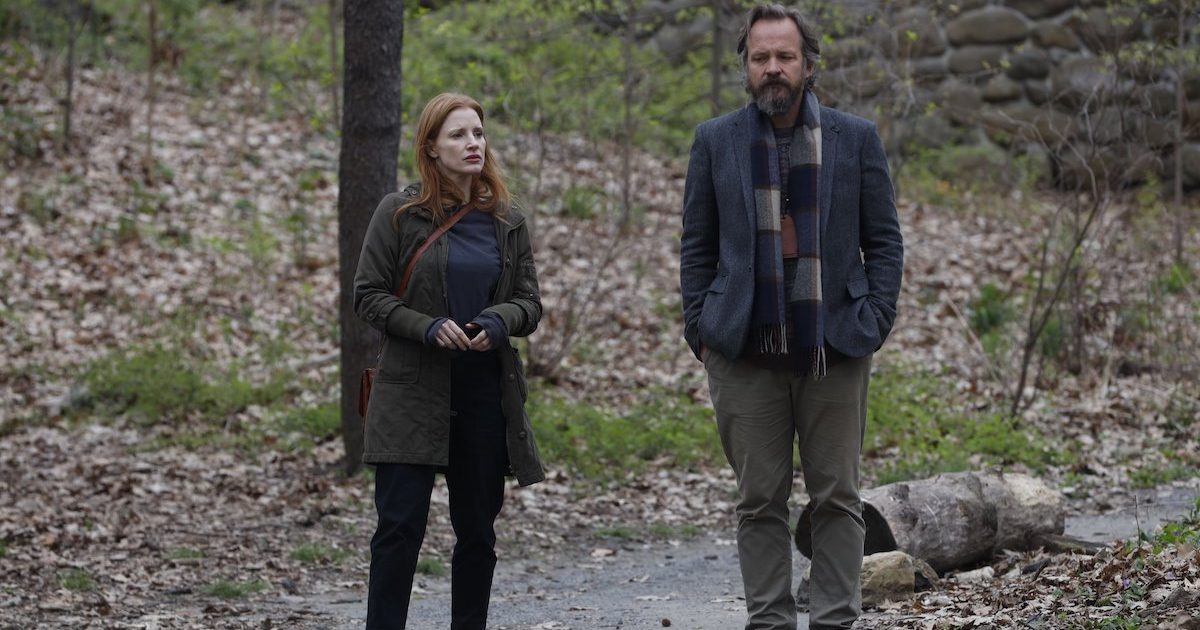From the hesitant kisses of Jessica Chastain and Peter Sarsgaard in Memento to the glimmer of hope in the migration stories of I Am Captain and Green Frontier. Until “poor” Emma Stone discovers the world (and sex)
There is an image, even outside the room, that stands out above all others: that of the silence—and the time—before the first kiss. This pause, this moment interrupted for an indefinite period of time, waiting on the crest of desire. Let’s start here: from the end. Or rather, from the beginning of any story. From one of the last shots of Venice: the kiss of Jessica Chastain and Peter Sarsgaard in Memory Michel Franco, but above all by what (does not happen) in the dense and soft seconds preceding him. Wounded, lost, broken souls: yet ready to take that step again, reborn there on the edge of the abyss.
There is still room for love in “The Monster Exhibition”: both for others and for cinema. This is the persistent feeling that the eightieth Laguna Festival conveys to us: this is past, but always true love for Snack Stefan Brize, one that even spans centuries but does not experience the future La Bette Bertrand Bonello, the one who defies the laws of physics and parallel universes in the acrobat Theory of everythingthe one who invents the family in Bastardenwith Mads Mikkelsen.
And even where there is no love, there is a glimpse of brotherhood, solidarity, help. This is muddy water, the water of reality: they know it. I’m the captain Matteo Garrone, Commander Edoardo De Angelis e Green border Agnieszka Holland. Films with the theme of migrants (even if De Angelis is only metaphorical), some with politics, some with poetry: but relevant, relevant. This is reality, beauty: even in a skillfully transformed form. Like a vampire Pinochet El Conde Pablo Larraina, the undead still bleeding in Chile, but also a “civilization” of consumption that risks jeopardizing the balance between man and nature in Evil doesn’t exist Ryusuke Hamaguchi.
“Green Border” by Agnieszka Holland. Photo: Metro Films
An exhibition in black and white and color that caresses (yes, it’s possible!) its creatures: perhaps flirting with Frankenstein, as Yorgos Lanthimos does in Poor thingsthe brilliant path of female emancipation, or through the transformations and transformations of its main characters (DogMan Luc Besson, A woman from… Malgorzata Szumowska and Michal Englert), monsters only for a world that does not understand them. The real ones are somewhere else, in the luxurious Parisian apartment of the late Woody Allen. Random coupin batches Aeneas Pietro Castellitto and in those who are deformed by plastic surgery, Castle Roman Polanski, among Fincher’s hitmen Murdereras in the future: because tomorrow (or now?) is true Beast it will be artificial intelligence.
Among the more or less announced biographical films (from Owner Bradley Cooper Priscilla past Sofia Coppola Source Ava DuVernay) to coming-of-age novels (many and varied: Garrone, but also Costanzo and Finally dawn, Holly author: Fien Trosch Slowly Stefano Sollima), Venice 80 has never stopped searching for its individuality, always offering freedom of choice even to those who did not have it.
An exhibition that grew to ask questions rather than provide answers, and found treasures where perhaps the least expected the day before. But the beauty of such an event is precisely this: the erasing of prejudices, seeing the collapse of confidence and the ability to be surprised. Even if the publications are 80 or even more years old. But it’s a bit like Manufacturing Cedric Kahn: I don’t know about the show, but the movie must go on.

